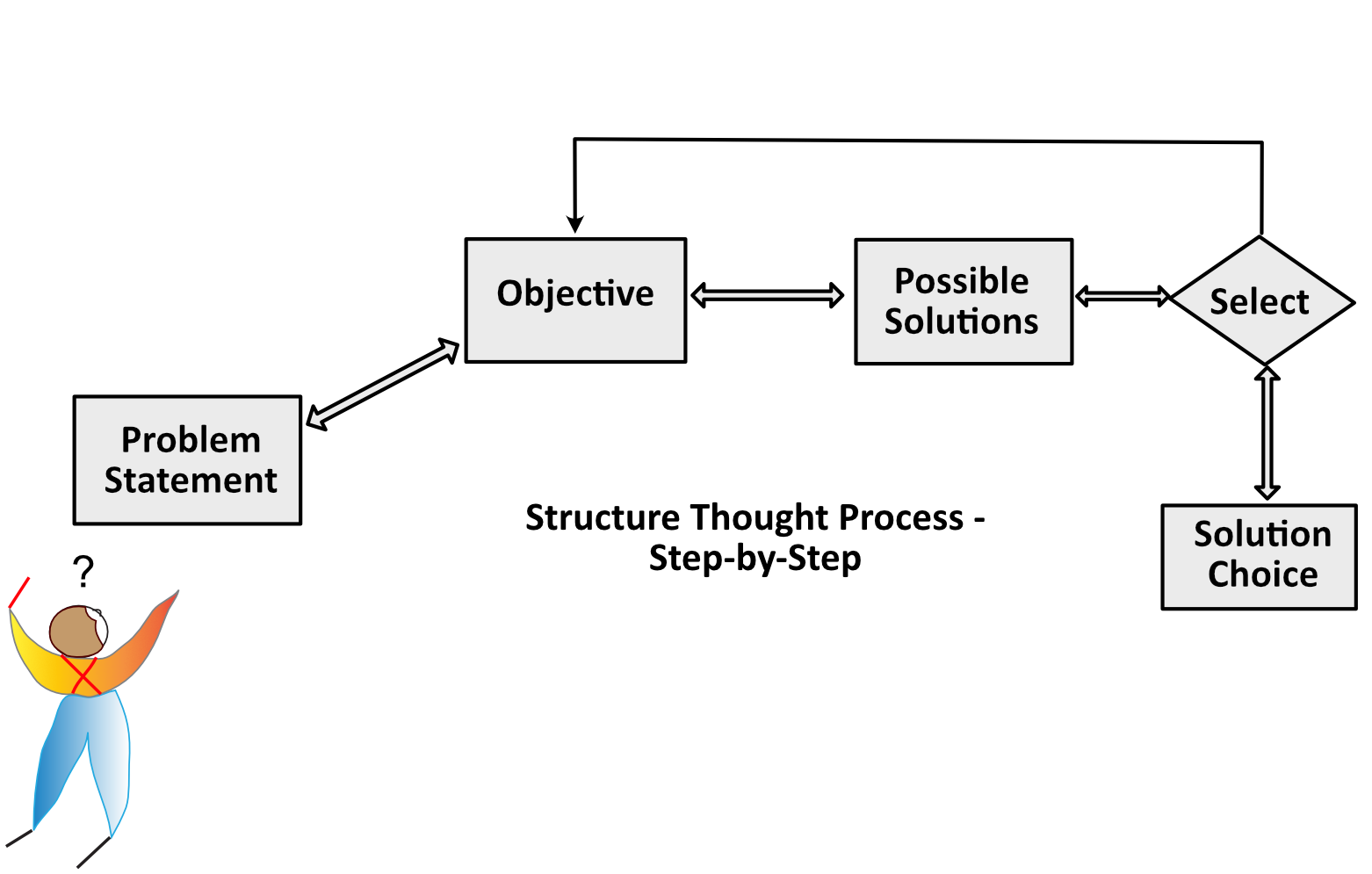February 2022 - The FoCuSeD™ Facilitator Newsletter

Holistic ‘Structured’ Thought Processes – Process Skills | Gary Rush, IAF CPF | M
One weakness for many Facilitators is structured thought processes – process skills. They deal well with people issues, but they struggle defining a clear, structured thought process for the group to follow. I’m talking about processes that help structure the thinking of a group so that they can make effective decisions to ensure well thought-out solutions.
How often have you attended a meeting where people work together well, but can’t get from point A to point B when it comes to making decisions? It isn’t because they can’t decide. It’s because something is missing – a structured thought process. For example, a group is in a meeting developing criteria to choose between vendors for a project, but they disagree about the criteria. Why? There are two (2) major reasons why groups disagree about criteria:
- They don’t have an overarching goal to guide the criteria.
- They disagree about “subjective” criteria (e.g., vendor viability).
A well-structured holistic thought process solves both problems.
Process Skills are Misunderstood
Facilitators make the mistake of thinking that process relates to business procedures – it doesn’t. Process is a way of organizing thoughts to methodically think through a problem, decide, prioritize a list, etc. Too often, groups jump ahead to solutions without defining the problem, so they struggle because they don’t share a common goal – these are process issues. A holistic structured thought process helps avoid missing crucial components, such as “Overall Goal”. Some basic structured thought processes are:
- For Problem-Solving:
- Symptoms --> Cause --> Solution
- Problem Statement --> Objectives --> Solutions Select Solution
- What is happening? --> What are the problems or missed opportunities? --> What will we do?
- For Setting Direction:
- Vision --> Goals --> Objectives --> Tactics
- Why --> Where --> How --> When
- For Defining Actions:
- What --> Who --> When
- What are we Doing --> What are the Barriers --> What do we want to Accomplish --> How do we get There?
- Overall Goal --> Steps to reach Goal --> Sequence of Steps
“Process Skills” are Crucial
Process Skills are just as important as People Skills. Without process skills, groups will struggle and break down making win-win difficult at best.
People Need Balanced Holistic Structured Learning
When I train Facilitators, I devote 50% of class time to People Skills and 50% to Process Skills, providing balanced Holistic Structured Learning. People need to know “how to” form teams (people skills) and they need to know “how to” guide teams to a well thought-out solution (process skills).
Process Skills provide deliberate, holistic structured thought processes to build something of value.